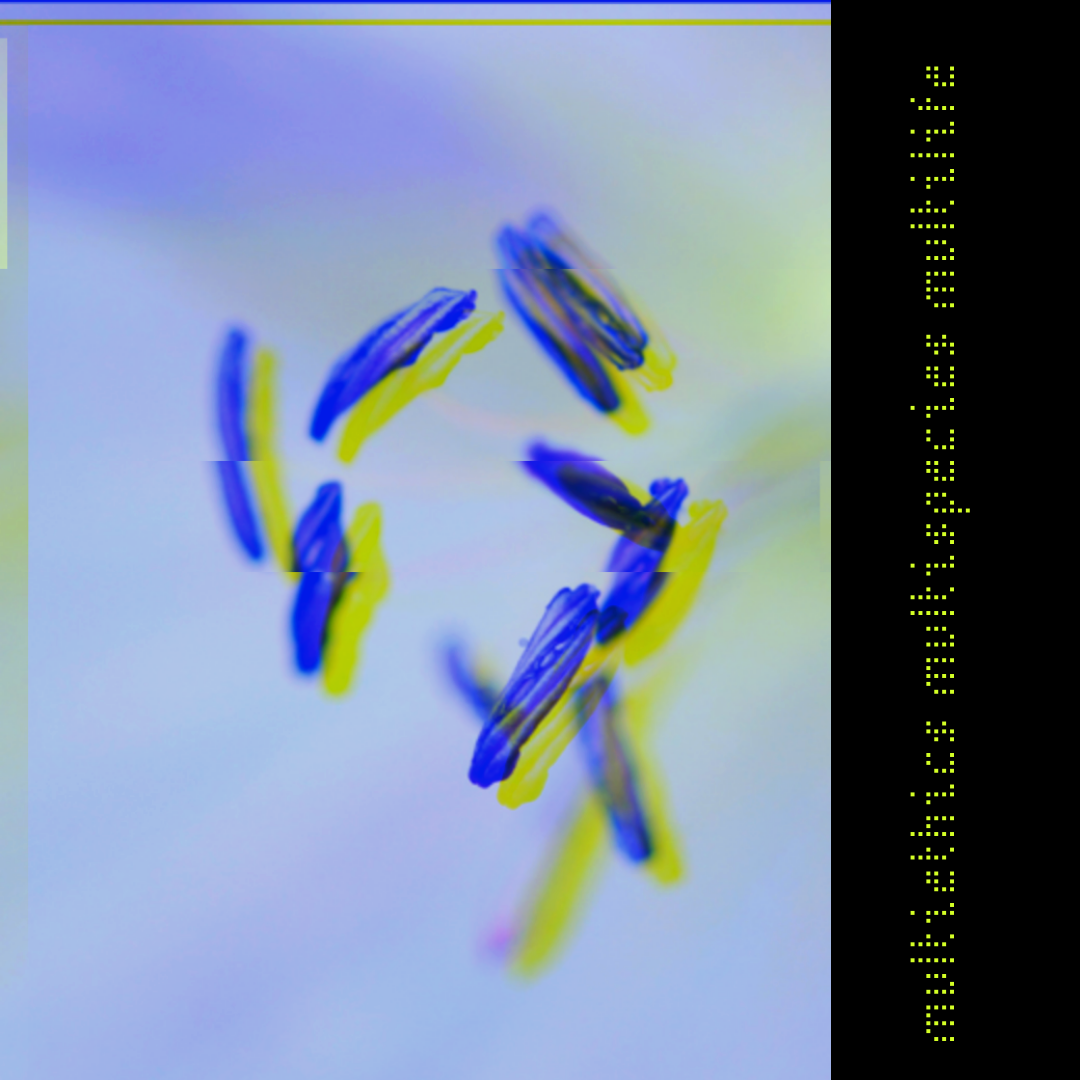
Kasey Jueds
Artist Statement: Talking & Listening to Plants
When my partner and I moved to this small town in upstate New York, we stopped mowing the lawn and waited to see what might happen. Over time, what appeared to be “just grass”—uniform, dull, cut close to the ground—revealed itself as myriad. First, goldenrod and asters appeared; then milkweed, yarrow, one cardinal flower so richly red it was hard to look away.
Since then I’ve learned the term “seed bank,” which refers not only to vaults where people store seeds to preserve genetic diversity but also to the earth’s own process of seed storage. Seeds of goldenrod and aster and Joe-Pye weed: they were simply there, hidden just beneath the so-called lawn: present, waiting.
Only “waiting” isn’t right. None of the words are right. How might a seed understand or express or relate to our human concept of waiting? Is there any such thing, to them, anything even close? How could I ever know? And still: plants, more-than-human animals, rivers and stones: these are the beings I want to write with and toward. What myriad things do they have to teach us?
For example: time. What is time to the heart-leaved aster, the blue lobelia? Thinking of plants, I wonder about the relationship between the urgency of climate crisis (real, present, true) and typical ways of understanding time, at least typical for me: time as clock time, as limited/scarce, as moving in one direction only. I wonder if this relationship might differ from how I assume it must be. I wonder about the way Zen students are urged to practice “as if there’s a fire on your head” and, in the exact same moment, to recognize that everything is perfect just as it is, and to school themselves in patience and gentleness.
Everything is perfect just as it is. How can this possibly be? But if it is possible (and part of me says yes to this, in ways I can’t explain), could I learn this perfection from the goldenrod?
I want to. I want to try, and writing is central to that trying. I write for many reasons but more and more this one feels necessary: writing not because I know things but because I want to learn, and because I want to learn from the beings I live among, more and more from yarrow and milkweed, snakeroot, the resonantly-named self-heal.
Kasey Jueds is the author of two collections of poetry, both from the University of Pittsburgh Press: Keeper, which won the 2012 Agnes Lynch Starrett Prize, and The Thicket. She lives in a small town in the mountains of New York State (U.S.). www.kaseyjueds.com


